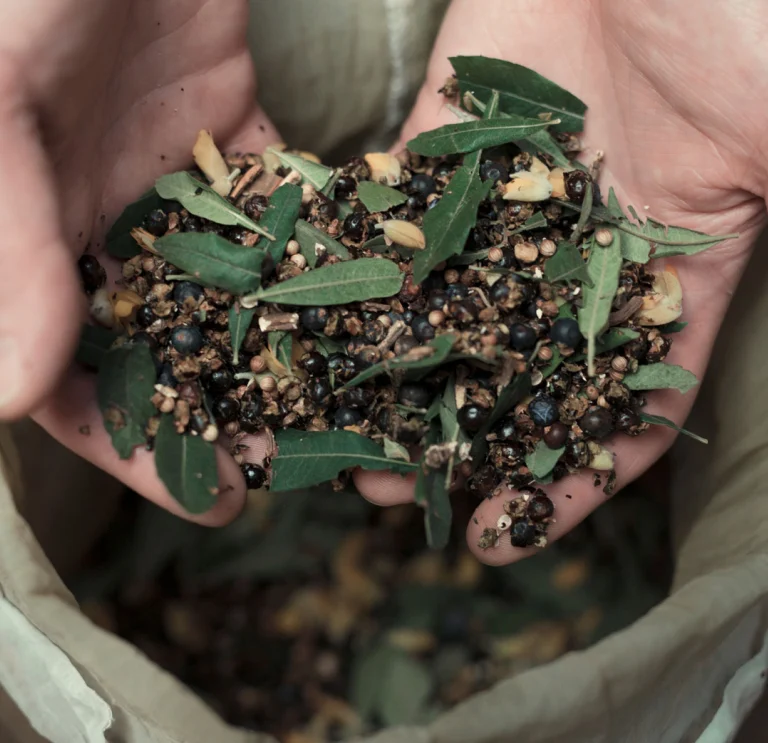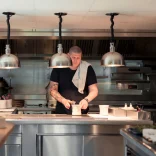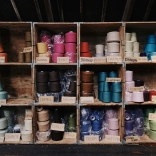The names of some of the biggest US spirits — Jack Daniel's and Evan Williams — reveal their Welsh roots. But while Welsh émigrés were inspiring the US whiskey and bourbon industry, things were trickier back home in Wales. The 19th century temperance movement took a dim view of strong liquor. Local distilleries were wiped out by an 1823 law that banned small stills: too hard to regulate, and too hard to tax.
Apart from a few (illegal) moonshiners in barns, cellars and sheds, Welsh spirits evaporated when the Frongoch whisky distillery finally went bust in 1910. It wasn’t until the late 1990s that a few friends decided to do something about it.
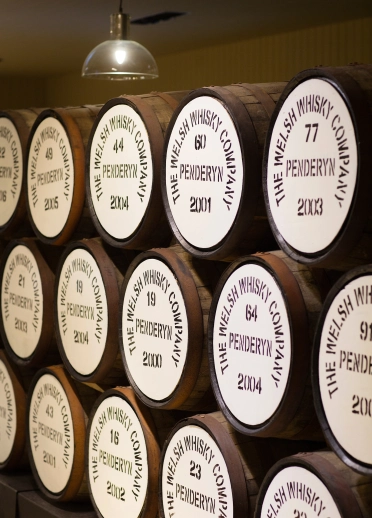
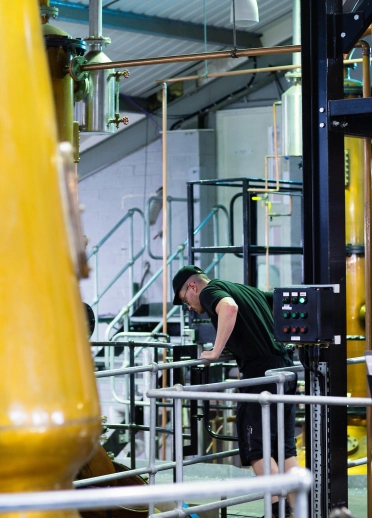
Penderyn came about as conversation in a pub,” says Stephen Davies, the managing director of Wales’ biggest and best-known whisky distiller. “A group of friends decided to bring whisky distilling back to Wales. It’s a challenging thing to do. You have to mature it for a minimum of three years to legally call it whisky - and then beyond that if you want to create really world-class spirits.”
But that’s what they did. Twenty years on, Penderyn makes a range of outstanding whiskies in variety of cask finishes – madeira, port, bourbon, sherry, peated – which have won international acclaim and are now exported to 33 countries.
Stephen Davies, Managing Director, Penderyn DistilleryA group of friends decided to bring whisky distilling back to Wales. It’s a challenging thing to do. You have to mature it for a minimum of three years to legally call it whisky - and then beyond that if you want to create really world-class spirits.”
It’s also distinctly Welsh, says distillery manager Laura Davies. “We’re not trying to copy anyone: we produce Welsh whisky,” she says. “We have two unique Faraday stills which operate quite unlike anything you’d see in Scotland. They give us a really pure, high-strength, light spirit, with lots of fruit and flavour. It gives us a great spirit to start off with, and when it goes into a cask it can only get better from there.”
Penderyn also make vodka and gin (and very good they are, too). But it wasn’t until 2009 when the law was relaxed to allow smaller stills to operate – and artisan gin producers were finally allowed to flourish.
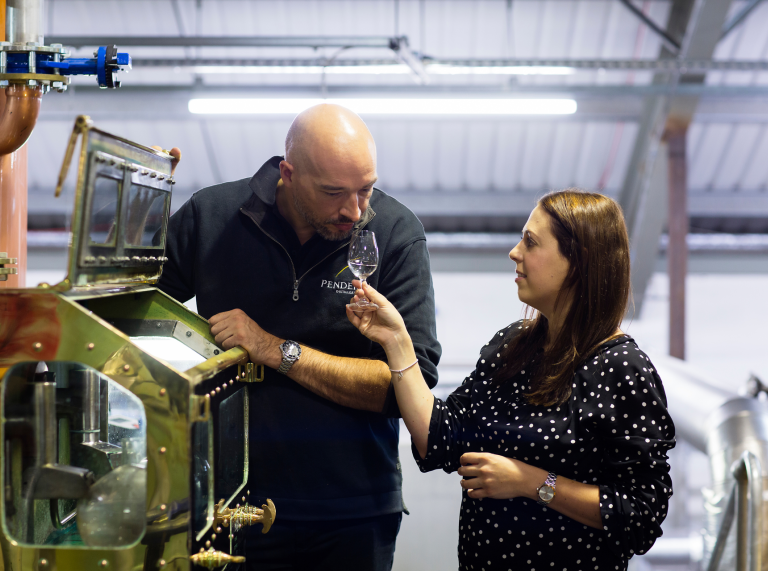
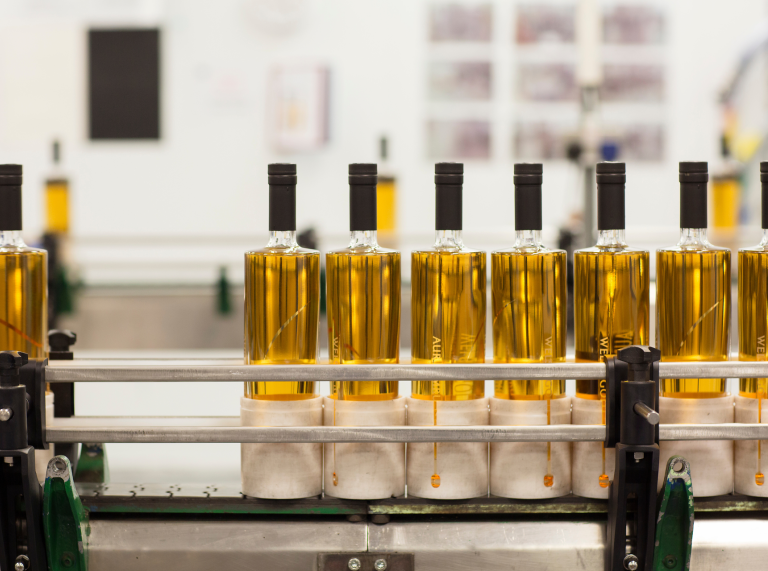
Pete Cameron has been foraging, farming and bee-keeping in the Dyfi valley for 25 years. His brother Danny is an international expert in the wine and spirits industry. “We thought it would be fascinating to see if we could combine our respective skills,” says Danny. The Dyfi Distillery was born.
“Gin was the obvious route, because both of us are interested in producing something that tastes of where it comes from,” says Danny. “We’ve got this amazing botanical diversity here. It’s a forager’s paradise.”
Dyfi’s Pollination gin, which uses 20 locally-foraged botanicals, won the best UK gin at the Great British Food Awards in 2017 – and became the first gin to retain the title in 2018. They've kept the momentum going winning three medals at the 2020 World Gin Awards - 'Best Welsh Dry Gin' with its Dyfi Original, while Pollination Gin scooped a gold medal and Hibernation Gin was awarded a silver.
Even so, Dyfi cheerfully admit that they’re never going to be a global brand. “We are a genuinely small artisan craft distiller, and our process is very long-winded,” says Danny. “We’re not commercially efficient in that respect. We’re 60:40 distillers and foragers. I think we’d fail if all we wanted to do was become a behemoth and take over the world. That doesn’t really chime with the values of us as a family, or as a business. It should be about promoting sustainability in all its forms.”
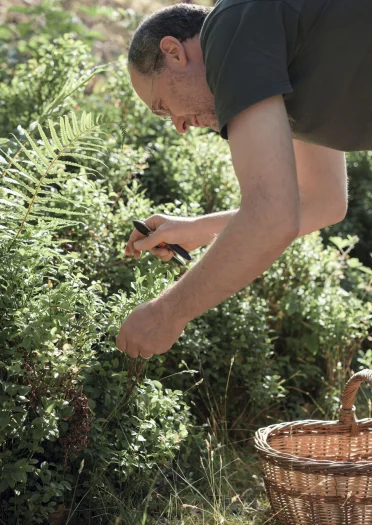
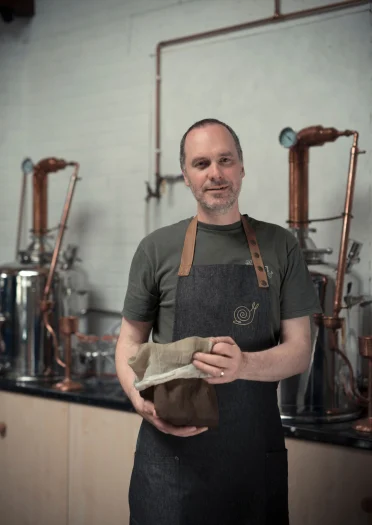
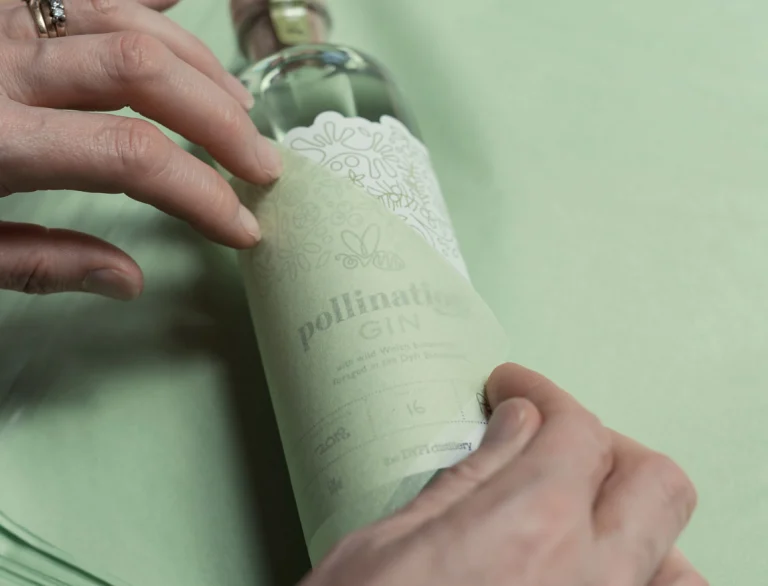
The list of artisan Welsh gins is growing all the time: Eccentric, Gower, Clwydian, Cygnet, Anglesey-Môn, LlanfairPGin, North Star, Hot Wood, Coles, Blue Slate. You can even have a crack at creating your bespoke botanical blend at In the Welsh Wind’s distillery in Tresaith, on the Ceredigion coast.
The multi-talented John Savage-Onstwedder, who makes award-winning, Teifi Cheese, set up the Dà Mhìle distillery on his farm in Ceredigion, making a range of gins alongside an organic single-grain whisky. He now plans to become the first single-estate whisky in Britain:
We’ll grow organic barley on the farm, harvest it and do the malting ourselves,” he says. “Everything from the growing to the distilling to the bottling and labelling – it’ll all be done here. Nobody else does that.”
John Savage-Onstwedder, Dà Mhìle distilleryEverything from the growing to the distilling to the bottling and labelling – it’ll all be done here. Nobody else does that.”
Now that the Welsh whisky tap has been turned on, there’s no stopping it. The first casks from the new Aber Falls distillery, on the Menai Strait in North Wales, will be ready to drink in 2021.
Now that’s something to look forward to.
